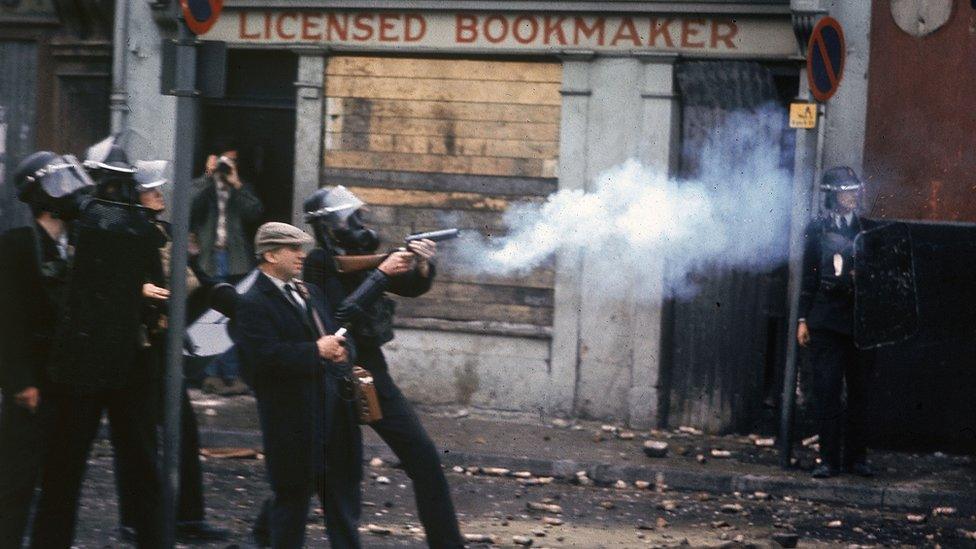Mountbatten anniversary: Service held to mark IRA killings
- Published
Mountbatten anniversary: 'This service had love for my family'
Services have been held to mark the 40th anniversary of two IRA attacks in Mullaghmore and Narrow Water.
On 27 August 1979, Lord Louis Mountbatten, the Queen's second cousin, and three others were killed after a bomb exploded on his fishing boat in County Sligo.
A few hours later, two IRA bombs went off at Narrow Water, near Warrenpoint in County Down, killing 18 soldiers.
It was the highest death toll suffered by the Army on a single day in NI.
In a statement at the time, the IRA said the killing of Lord Mountbatten was "one of the discriminate ways we can bring to the attention of the English people the continuing occupation of our country".
His 14-year-old grandson, Nicholas Knatchbull, and 15-year-old Paul Maxwell, a local boy who was working as a boatman, died when the boat exploded.
Another passenger, the Dowager Lady Brabourne, died the following day.
Paul Maxwell's mother and father were among those who gathered for an outdoor service on Tuesday.
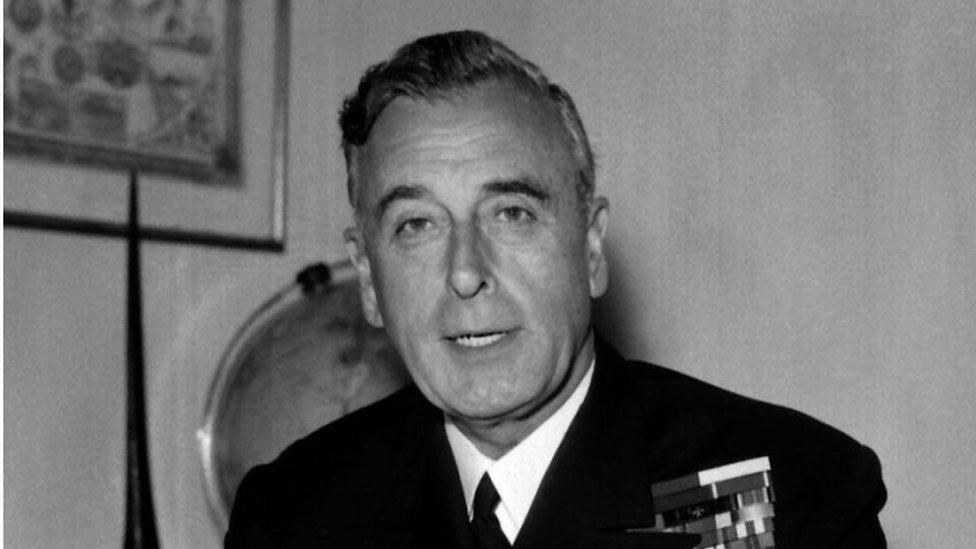
Lord Louis Mountbatten was killed when the IRA blew up his fishing boat
It was held on a clifftop overlooking the scene of the attack, and began with a minute's silence.
Paul Maxwell's mother, Mary Hornsey, said it was "absolutely wonderful that the community came out today".
"It has helped us enormously because I feel that in the service there was love and support for our family, and we appreciate that," she said.
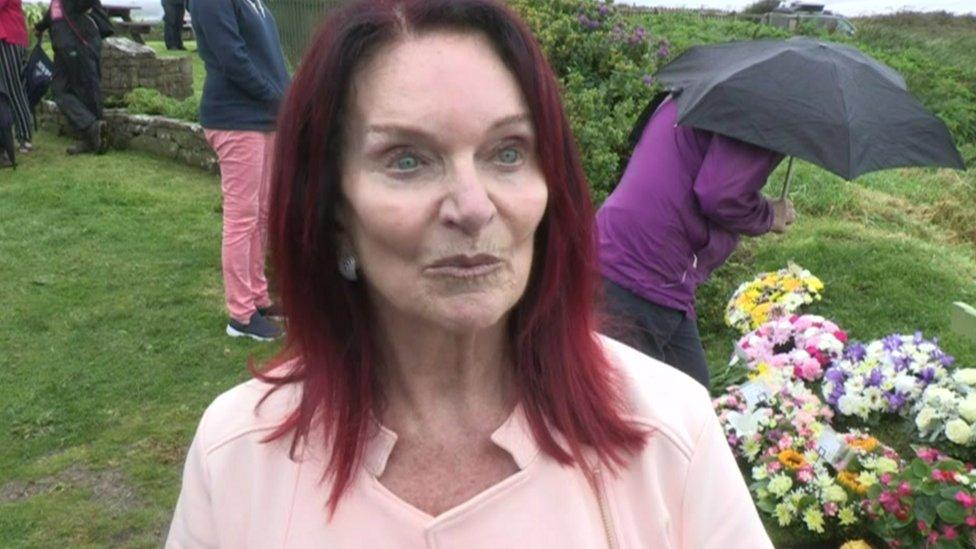
Paul Maxwell's mother, Mary Hornsey, said it was "absolutely wonderful" her family had been supported by the community
"I feel really privileged to be here, with all of these people."
John Maxwell, Paul's father, said it was "a great thing that so many people took the trouble to turn out".
Lord Mountbatten, who was 79 years old when he was killed, had traditionally spent summer holidays at Classiebawn Castle near Mullaghmore.
Soldiers targeted
As the news of Lord Mountbatten's death spread in 1979, the first of two bombs exploded in County Down.
It had been planted under hay on a lorry at the side of the road. When it exploded it killed six soldiers who had been travelling past in a four-ton lorry.
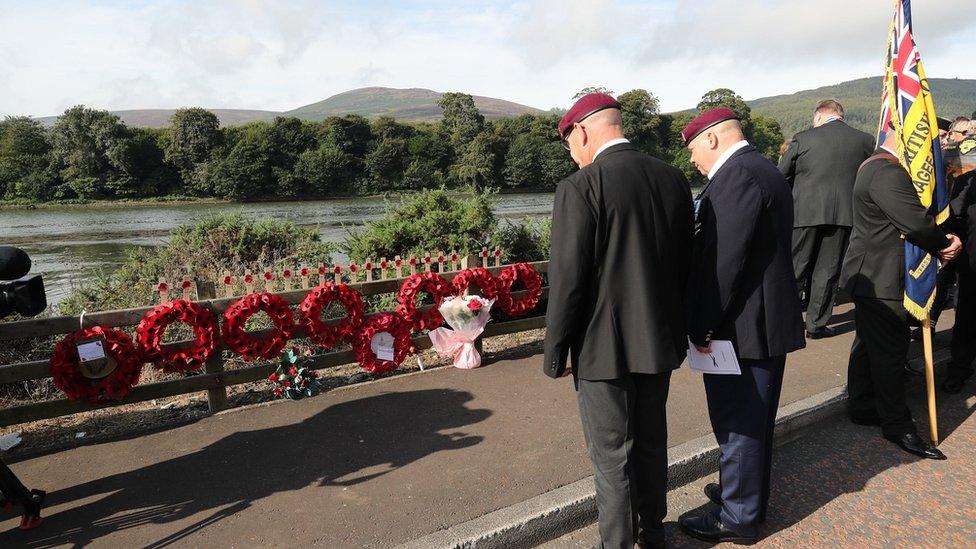
Veterans gathered at Narrow Water to remember the 18 soldiers killed by two IRA bombs
As the injured were airlifted from the scene, a second device detonated, killing 12 more soldiers who had been taking cover in a nearby gatehouse.
A short time later, a local civilian, 28-year-old Michael Hudson was found dead nearby. He had been killed by Army gunfire.
Peter McHugh, who was involved in the recovery of Lord Mountbatten's body, said while there had not been formal anniversary events each year, the bombing was "hugely significant" for people locally.
'A time when horror visited this coastline'
"Time has moved on; it's 40 years now, there is a huge distance time-wise between what happened, dreadful and all as it was.
"So it's nice to see that the family is all here."
At Narrow Water, the names of all those who died were read out and the Last Post was sounded.
Gathered at the scene were the families and friends of those killed and soldiers.
Among them was General Sir Michael Jackson, who had been a major in the Parachute Regiment at the time of the bombing.
Wreaths were laid at the scene.
What were the Troubles?
The conflict in Northern Ireland known as the Troubles lasted almost 30 years and cost the lives of more than 3,500 people.
In August 1969, the UK government sent troops to impose control.
The conflict in Northern Ireland, which has killed thousands, has political and religious roots that are centuries old.
Some people in Northern Ireland, especially the mainly Protestant Unionist community, believe it should remain part of the United Kingdom.
Others, particularly the mainly Catholic Nationalist community, believe it should leave the UK and become part of the Republic of Ireland.
- Published14 August 2023
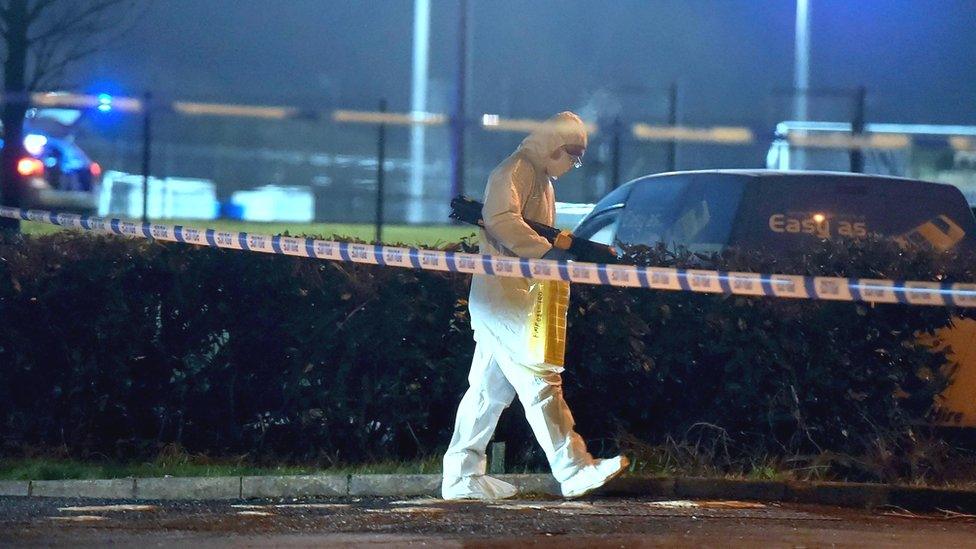
- Published13 August 2019
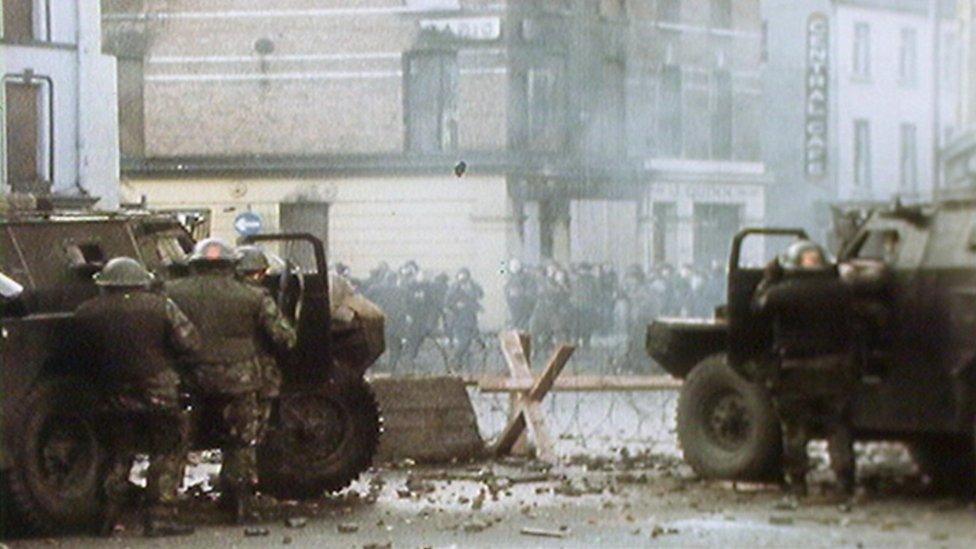
- Published12 August 2019
